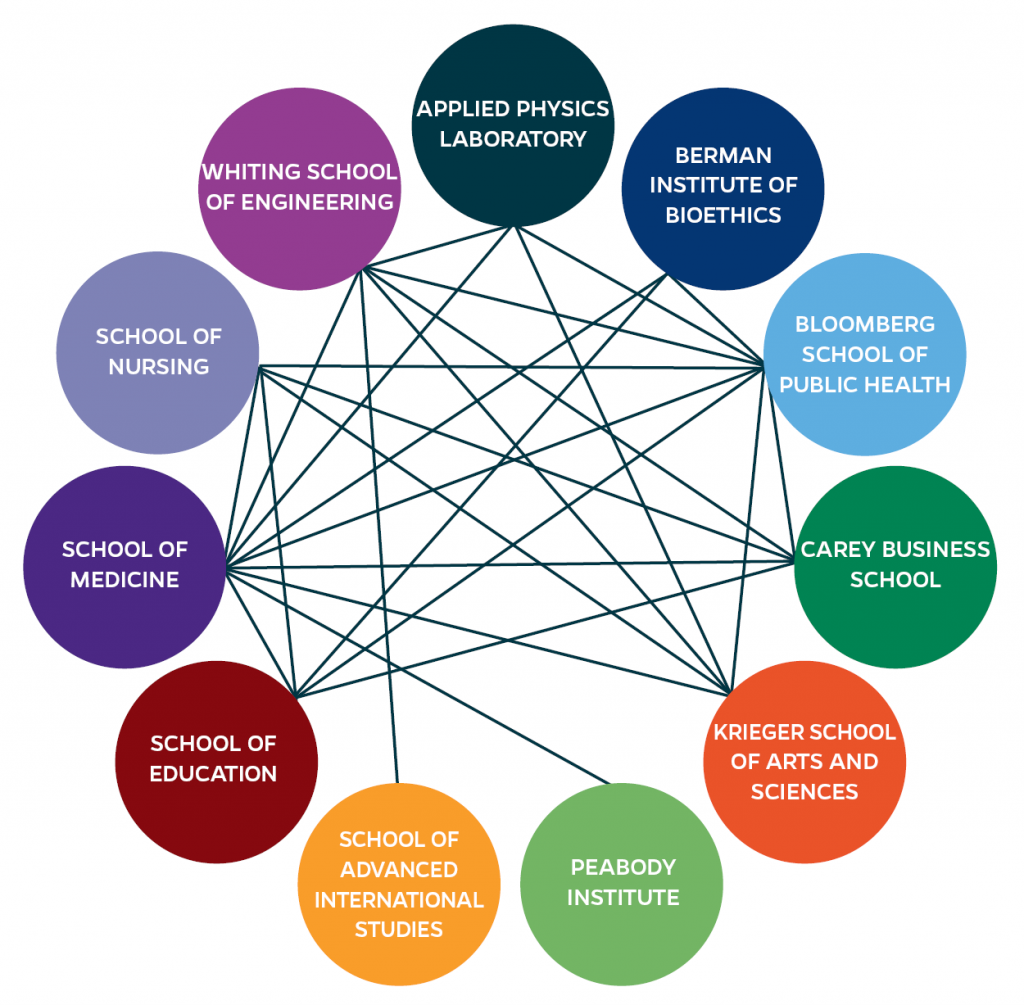
Congratulations to the Johns Hopkins University Discovery Award Winners
The Johns Hopkins Discovery Award Program has been pivotal in fostering new discoveries and interdisciplinary innovation across the University. HBHI has been pivotal in doing the same for work across JHU focused on the role of business and incentives advancing an affordable and equitable, high-value health system.
HBHI's partnership with the Discovery Award program enhances the support for up to two awards related to HBHI’s work. HBHI grants these awardees free access to the robust inventory of data on the Health Analytics Research Platform (HARP)
Read on for more about the winning endeavors supported by HBHI:
Using the Low-Income Housing Tax Credit for Assisted Living? Mapping the current environment and charting a path forward
Kali Thomas and Craig Pollack’s proposal aims to map the current environment and chart a path forward for using the Low-Income Housing Tax Credit (LIHTC) to support affordable assisted living for low-income older adults. The study will describe and compare assisted living facilities financed by LIHTC and identify best practices through nationwide data linkage and key informant interviews. HBHI and HARP will support this work by leveraging existing Medicare claims data to facilitate this important research.
Pharmaceutical Market Dynamics and Competition: The Impact of New Drug Formulations on Marketing and Spending
Ravi Gupta and Joe Levy’s proposal examines the impact of new drug formulations on marketing and spending within the pharmaceutical market. The study aims to understand how manufacturers use promotional strategies to maintain market share when facing generic competition, using a comprehensive dataset to analyze spending patterns. HBHI and HARP will support this research by providing free access to Medicare claims data and other computing resources.
In addition, a third Discovery Award affiliated with HBHI was granted to continue research that began with a 2023 HBHI Pilot Grant:
The Dynamics of Trust: An Interdisciplinary Approach to Improving Health Care Outcomes
Michael Darden, Mario Macis, Kathy McDonald, and Christina Yuan’s proposal investigates the role of trust in the United States health care system. This interdisciplinary team will field two nationally representative surveys of Americans to measure trust in the health care system and its distinct components. These survey instruments will advance beyond conventional scales by disentangling the contributions of expectations of competence, perceptions of benevolence, and the disutility associated with interacting with the health care system. Results from these surveys will become the “go-to” source for evidence on levels and trends in health care trust.
